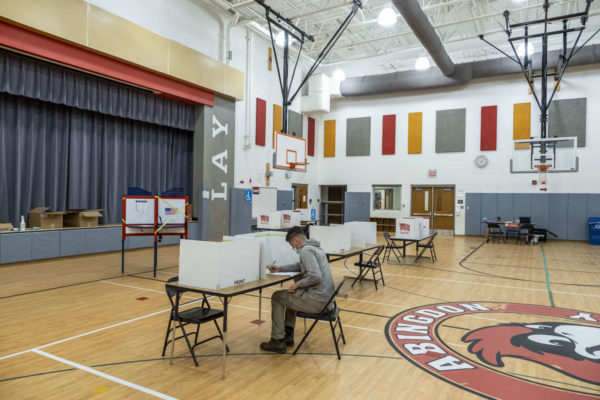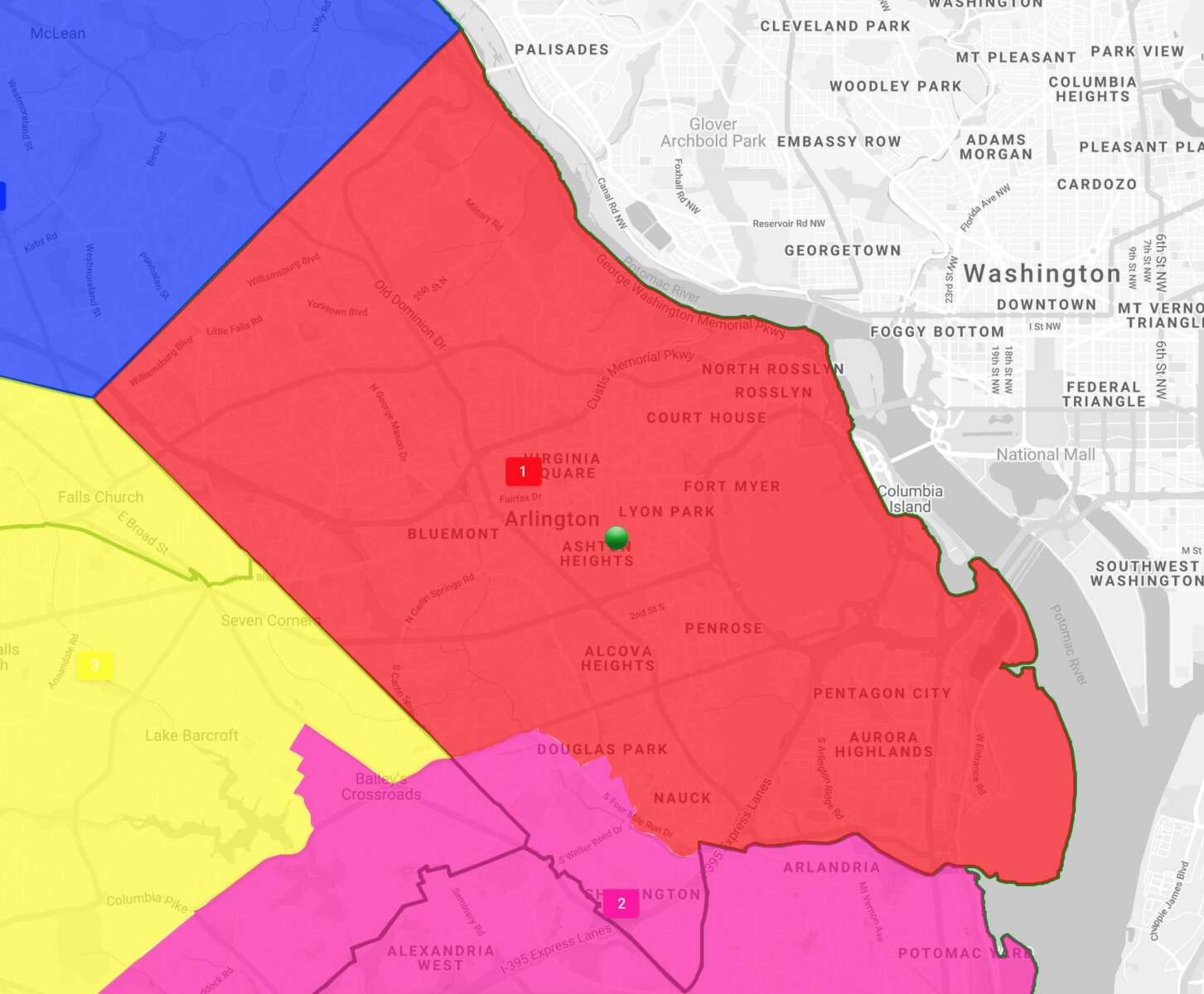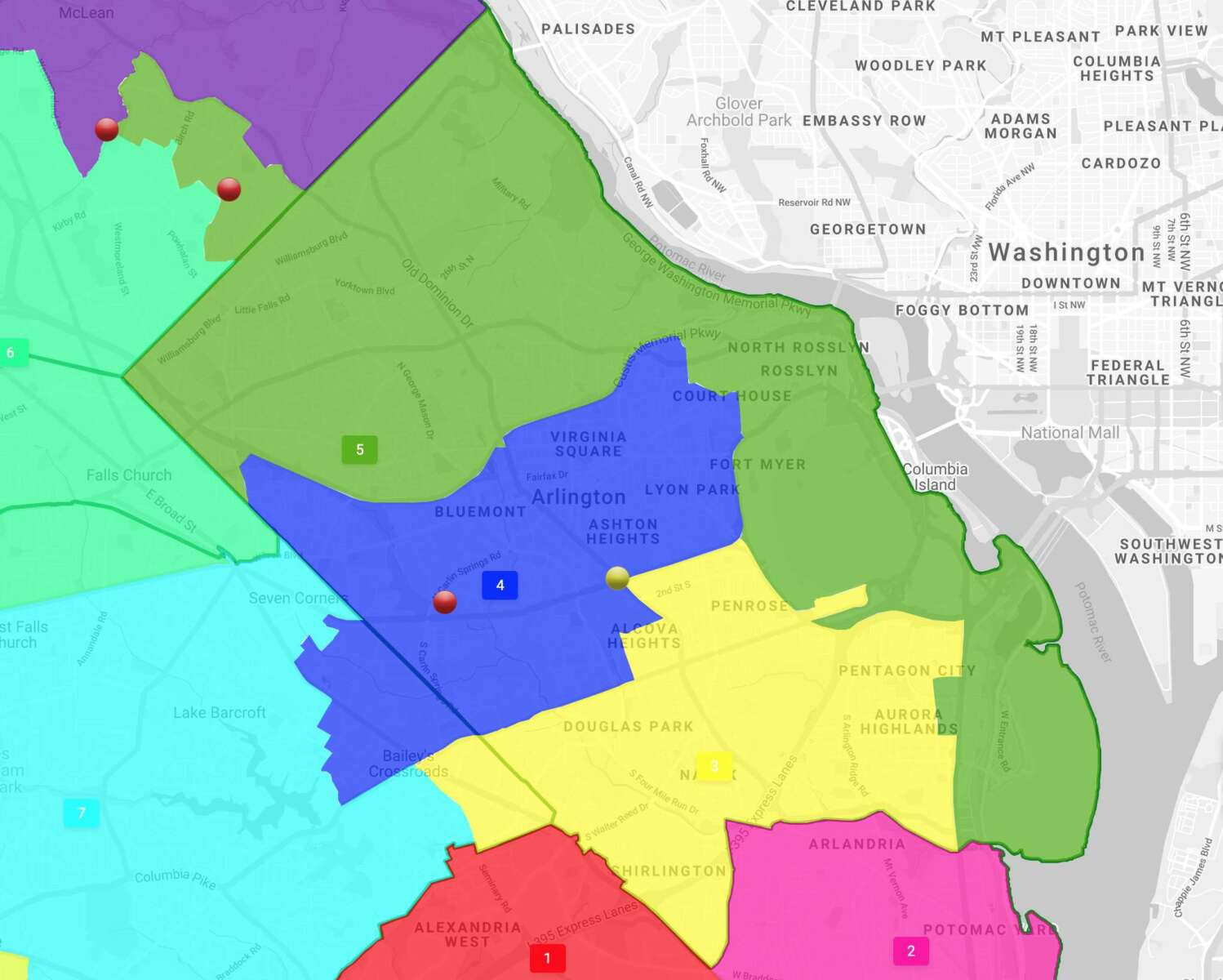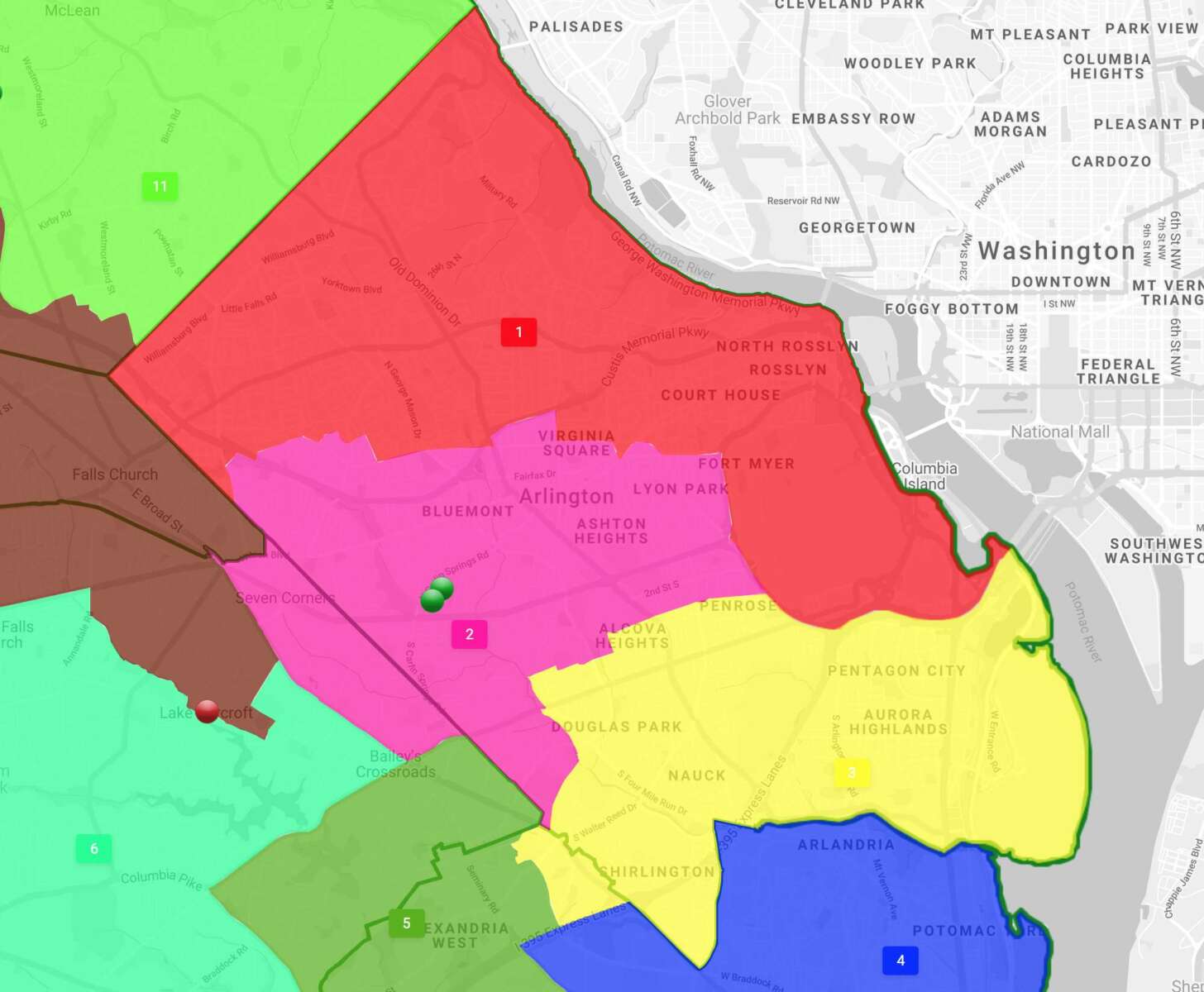Elections in Arlington County could change dramatically in the coming years.
First, County Board members are considering whether to do away with first-past-the-post voting for their seats and replace it with ranked-choice voting (RCV). And second, a 16-person bipartisan commission is redrawing boundaries for Virginia’s congressional, state Senate and House of Delegates districts, replacing the former redistricting process led by the state legislature.
As early as a 2022 primary, Arlingtonians could rank their picks for a County Board seat. They are also likely to see one fewer delegate and state senator representing the county.
During a Tuesday County Board meeting, county elections chief Gretchen Reinemeyer fielded questions from members about implementing, calculating and educating the public about ranked-choice voting and previewed how the 2020 U.S. Census could impact Arlington’s electoral districts.
A few Board members expressed their support for the system, also known as “instant runoff,” which selects a winner over the course of many elimination rounds.
“I think it does lead to much healthier campaigns and conversations,” Board Vice-Chair Katie Cristol said. “If your second choice is on the Board, making choices on your behalf, even if your first choice isn’t, I think that increases your tie to, and hopefully faith in, government,” she said.
Board Chair Matt de Ferranti said the system could fix issues in Arlington’s electoral process, but he requested more expert input before making a decision.
“Many in our community have said, ‘We don’t just want one party,'” he said. “For me, it would help [to understand] the math and then [lift] up the values that we want in our elections.”
Arlington’s ‘test run’
The County Board is expected to decide if RCV it applies to elections for their own seats, and whether it would be used in primaries, the general election, or both.
In 2020, the General Assembly gave municipalities the go-ahead to use ranked-choice voting locally, effective July 1, 2022. At the request of Del. Patrick Hope (D-47), it granted Arlington the ability to test out the system one year in advance.
So far, the county hasn’t taken advantage of this extra time, drawing criticism from this year’s independent candidates for County Board. They say the reform — although it wouldn’t apply this November — would add political diversity to the Board.
“That’s the plot by which some people in our community believe [we] have failed to act,” Board Member Christian Dorsey said.
Reinemeyer said due to an overlooked provision in electoral codes, Arlington couldn’t do anything until the state Board of Elections drafted ballot standards and tabulating rules.
School Board races are exempt both from Hope’s Arlington-specific law and the statewide one. Hope says he couldn’t find support for RCV among School Board members at the time. Still, Hope said he and Del. Sally Hudson (D-57), a sponsor of the statewide bill, are open to including School Boards if ranked-choice voting proves popular.
“I’d be open to bringing a bill in 2022 to expand ranked choice voting that would just apply to the Arlington School Board,” he said. “It could serve as a model for the rest of the Commonwealth.”
Different methods, different results?
Some members were concerned about whether different calculation methods could change election outcomes. They said this would undermine voter confidence when it’s already low after the 2020 presidential election.
“It’s fascinating me that depending on the process, the winners come out differently. That worries me, for confidence and all kinds of reasons,” Board Member Libby Garvey said.
Reinemeyer told the Board that, per Virginia code, the State Board of Elections has chosen to draft one set of rules for calculating results, meaning the choice is out of any single jurisdiction’s hands.
Garvey said that’s probably a good thing.
“I could see the first election, where it comes out, somebody who lost can prove, ‘If you tabulated it this way, our candidate would have [won],'” she said.
Reinemeyer later told ARLnow that she does not know if different methods could produce different outcomes, and “more research is needed on tabulation methodologies.”
What’s next
As soon as the state elections board officially adopts its standards, the Arlington County Board could draft and pass an ordinance.
An ordinance has to be in place 60 days before an election, but Reinemeyer recommends making the change before Jan. 2 of an election year to minimize impacts to candidates.
“My hope is that the state will adopt the regulations in time to use ranked choice voting next year, if that’s the county’s choice,” she said.
The county will also have to develop an outreach plan.
“We’re fortunate this has been socialized to a degree: the Arlington County Democratic Committee has been doing this for the School Board for years, and the County Board last year,” said Matt Weinstein, Chair of the Arlington Electoral Board. “But it’s going to be a heavy lift. It’s a new way of voting for many voters.”
Redistricting
As for redistricting, it’s both a year behind schedule and unfamiliar.
Redrawing new boundaries occurs every 10 years following the U.S. Census. Redistricting was pushed back by 11 months following census delays caused by the pandemic.
This year, Reinemeyer said, “the redistricting process is completely new and unlike any of the previously used processes in Virginia.” In 2020, voters supported a measure to establish a bipartisan Redistricting Commission, comprised of eight legislators and eight citizens, that redraws boundaries.
And now, the new commission is running up against deadlines and still in a gridlock. Virginians are invited to comment on maps or speak at commission meetings through Oct. 25.
Boundaries would be redrawn for Arlington’s single congressional district, its three state Senate districts (30th, 31st and 32nd) and its four House of Delegates districts (45th, 47th, 48th and 49th).
According to Reinemeyer, the congressional district is likely to be unchanged, while most of the proposed maps give Arlington two Senate districts, down from three, and three House districts, down from four.
Completed, commission-approved maps go to the General Assembly for a vote. If voted down, the commission tries again. If the maps are nixed a second time, the state Supreme Court draws the maps.
Arlington’s Electoral Board Secretary Scott McGeary said state Democrats think this could get dicey.
“I was with a group of four members of majority party in the Senate, and their expectation is that there will be lawsuits particularly if the districts are drawn by the Supreme Court,” McGeary said. “It could also happen if they don’t do that and the final word is held with commission with support of the General Assembly.”





